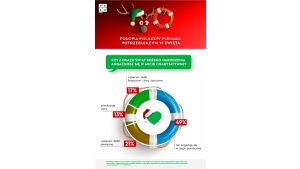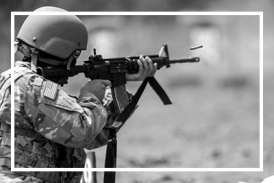UBS: investors plan to use their capital to drive change after COVID-19
- The pandemic has made nearly eight in 10 investors want to reassess their life goals
- Nine in 10 investors want their investments to align with their values
- Nearly two thirds are more interested in sustainable investing as a result
- Women and younger generations are the most motivated to make a difference in the world through charitable giving
With COVID-19 vaccinations accelerating and the economy opening, 90% of wealthy investors agree that the pandemic has made them want to align their investments with their values, according to the new Investor Watch survey by UBS, the world’s leading global wealth manager.
The report, which polled 3,800 investors across 15 markets globally, found investors increasingly want to use their capital to drive change and are looking to find greater purpose in their lives:
- 79% felt that the pandemic made them reassess what is most important
- Nearly half plan to increase their charitable giving
- Almost sixty percent are more interested in investing sustainably than they were before the pandemic.
“The pandemic has prompted many investors to re-evaluate what matters most to them and now have a renewed desire to contribute more to benefit society,” said Tom Naratil, Co-President of UBS Global Wealth Management and President of UBS Americas. “It is incredibly encouraging to see that purpose-driven investment will be a priority for investors in the years to come. This is a unique moment where wealth managers have the opportunity to help their clients create immense change and better outcomes for future generations.”
The survey found that younger generations turned their attention more to purpose-related investing as a result of the pandemic. Seventy-nine percent of investors aged 50 and under noted that the pandemic made them want to make more of a difference in the world, compared to fifty-one percent of investors over 50. Nearly three-quarters of this younger demographic also want to develop or update a comprehensive financial plan.
Iqbal Khan, Co-President of UBS Global Wealth Management, said: “Globally, investors are motivated to play their part in making the world a better, more sustainable place. The heightened interest in charitable giving and desire to obtain sustainable investing advice from younger generations is a sign, too, that this mindset may be here to stay.”
From a gender perspective, more women have seen the pandemic as a time for reflection. Eighty-four percent said that they have reassessed their goals amid the pandemic, compared to seventy-six percent of men. As investors begin to put the pandemic behind them, fifty-one percent of women plan to increase charitable giving compared with forty-two percent of men.
About the UBS Investor Watch Survey
For this edition of UBS Investor Watch, we surveyed 3,800 investors. They were made up of those over 25 years old with at least $1 million in investable assets. The global sample was split across 15 markets: Argentina, Brazil, mainland China, France, Germany, Hong Kong, Italy, Japan, Mexico, Russia, Singapore, Switzerland, the UAE, the UK and the US. The research was conducted in May 2021. Findings were compared to study conducted in May of 2020 among more than 3,750 investors with similar asset levels and age groups.

Grudziądz z placówką VeloBanku. Na mieszkańców czeka atrakcyjny kredyt gotówkowy

Już połowa Polaków pomaga potrzebującym w święta

Klienci VeloBanku z garścią prezentów w bankowości mobilnej i internetowej
Więcej ważnych informacji
 Jedynka Newserii
Jedynka Newserii

 Jedynka Newserii
Jedynka Newserii

Polityka

D. Joński: Nie wiemy, co zrobi Rosja za dwa–trzy lata. Według duńskiego wywiadu może zaatakować kraje nadbałtyckie i musimy być na to gotowi
Zdecydowana większość krajów unijnych wskazuje na potrzebę wzmocnienia zdolności obronnych Europy w obliczu coraz bardziej złożonego geopolitycznego tła. Wywiady zachodnich państw wskazują, że Rosja może rozpocząć konfrontację z NATO jeszcze przed 2030 rokiem. Biała księga w sprawie obronności europejskiej „Gotowość 2030” zakłada m.in. ochronę granic lądowych, powietrznych i morskich UE, a sztandarowym projektem ma być Tarcza Wschód. – W budzeniu Europy duże zasługi ma polska prezydencja – ocenia europoseł Dariusz Joński.
Transport
Duże magazyny energii przyspieszą rozwój transportu niskoemisyjnego w Europie. Przyszłością może być wodór służący jako paliwo i nośnik energii

Zmiany w europejskim transporcie przyspieszają. Trendem jest elektromobilność, zwłaszcza w ramach logistyki „ostatniej mili”. Jednocześnie jednak udział samochodów w pełni elektrycznych w polskich firmach spadł z 18 do 12 proc., co wpisuje się w szerszy europejski trend spowolnienia elektromobilności. Główne bariery to ograniczona liczba publicznych stacji ładowania, wysoka cena pojazdów i brak dostępu do odpowiedniej infrastruktury. – Potrzebne są odpowiednio duże magazyny taniej energii. Przyszłością przede wszystkim jest wodór – ocenia Andrzej Gemra z Renault Group.
Infrastruktura
W Polsce w obiektach zabytkowych wciąż brakuje nowoczesnych rozwiązań przeciwpożarowych. Potrzebna jest większa elastyczność w stosowaniu przepisów

Pogodzenie interesów konserwatorów, projektantów, inwestorów, rzeczoznawców i służby ochrony pożarowej stanowi jedno z największych wyzwań w zakresie ochrony przeciwpożarowej obiektów konserwatorskich. Pożary zabytków takich jak m.in. katedra Notre-Dame w Paryżu przyczyniają się do wprowadzania nowatorskich rozwiązań technicznych w zakresie ochrony przeciwpożarowej. W Polsce obowiązuje już konieczność instalacji systemów detekcji. Inwestorzy często jednak rezygnują z realizacji projektów dotyczących obiektów zabytkowych z uwagi na zmieniające się i coraz bardziej restrykcyjne przepisy czy też względy ekonomiczne.
Partner serwisu
Szkolenia

Akademia Newserii
Akademia Newserii to projekt, w ramach którego najlepsi polscy dziennikarze biznesowi, giełdowi oraz lifestylowi, a także szkoleniowcy z wieloletnim doświadczeniem dzielą się swoją wiedzą nt. pracy z mediami.



![Nestlé w Polsce podsumowuje wpływ na krajową gospodarkę. Firma wygenerowała 0,6 proc. polskiego PKB [DEPESZA]](https://www.newseria.pl/files/1097841585/fabryka-nesquik_1,w_85,r_png,_small.png)




.gif)

 |
| |
| |
|